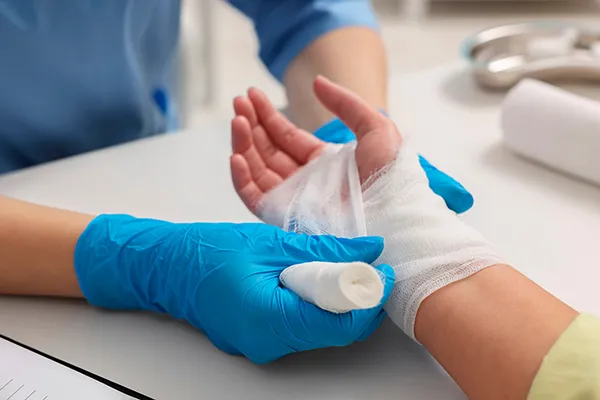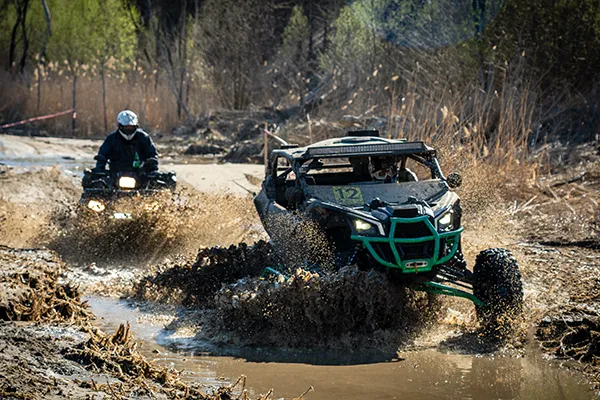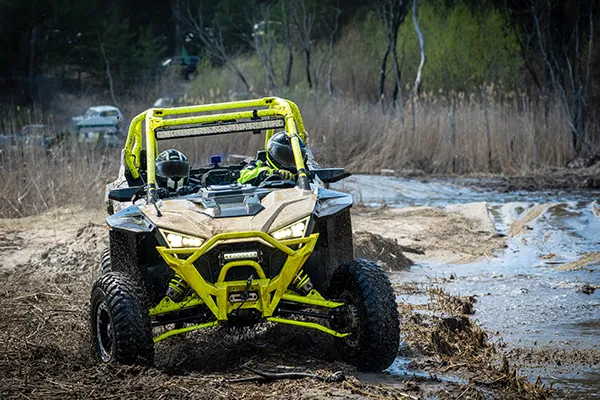Mechanical Burn Injuries: Understanding the Risks and Legal Options
Mechanical burn injuries are a serious and often overlooked category of burn-related accidents. Unlike burns caused by fire, hot liquids, or chemicals, mechanical burns occur when skin and underlying tissues are damaged by friction, pressure, or contact with moving machinery or equipment.
These injuries can happen in workplaces, during recreational activities, or through defective products, and they can range from superficial abrasions to deep, life-altering injuries that require extensive medical care.
Common Causes of Mechanical Burn Injuries
Mechanical burns can result from a variety of situations, including:
- Industrial and Workplace Accidents: Employees operating heavy machinery, conveyors, grinders, or other mechanical equipment may suffer burns if safety guards are absent or safety protocols are not followed.
- Automotive and Recreational Equipment: Items like ATVs, motorcycles, and other vehicles can cause mechanical burns when moving parts, engines, or hot surfaces contact skin during use or accidents.
- Household and Consumer Products: Some burn injuries occur at home when devices or tools with mechanical components malfunction or are defective, such as kitchen appliances, power tools, or heating devices.
- Construction and Industrial Tools: Sanding machines, belt grinders, or other construction equipment can produce friction burns or heat burns if not properly maintained or used.
Mechanical burns can be deceptively severe. Even when they appear minor at first, they can damage deeper tissue layers, cause infections, lead to permanent scarring, and significantly impact mobility or daily functioning.
In some cases, victims may require surgeries, skin grafts, or long-term rehabilitation, depending on the severity of the injury.
Legal Considerations for Mechanical Burn Injuries
Victims of mechanical burn injuries in South Carolina may have the right to pursue compensation if their injury was caused by defective equipment, inadequate safety measures, or negligent parties. Legal claims can include:
- Product Liability: If a mechanical device or tool was defectively designed, manufactured, or failed to provide adequate warnings, manufacturers and sellers can be held responsible for injuries.
- Negligence: Employers or operators who fail to maintain safe working conditions or provide proper training and protective equipment may be liable for burn injuries.
- Premises Liability: Property owners may be held accountable if hazardous conditions contributed to a mechanical burn injury.
Compensation in mechanical burn injury cases can cover medical expenses, lost wages, rehabilitation costs, pain and suffering, emotional distress, and permanent disability or disfigurement.
Each case is unique, which is why consulting an experienced attorney is essential to understanding your legal rights and building a strong claim.
Contact us today at 843-438-4386 if you or a loved one suffered a mechanical burn injury. We are here to help 24/7.
Polaris ATV Fires and Recalls
Polaris ATVs are popular for their performance and versatility, but several models have been linked to fire hazards, prompting multiple recalls over recent years. Understanding these risks and the steps to take if you own an affected vehicle is crucial for your safety.
Causes of Polaris ATV Fires
Polaris ATVs and related off-road/recreational off-highway (ROV) vehicles have experienced fires for a variety of mechanical, electrical, and design-related reasons. Some of the recurring causes include:
Fuel Leaks
Perhaps the most common driver of fire risk: when fuel escapes from tanks, fuel lines, or fuel system components and comes into contact with hot surfaces (engine exhausts, manifolds, etc.). Leaks may stem from improperly routed or pinched fuel hoses, defective fuel pump assemblies, or flawed welds and connectors.
Overheating/Worn or Damaged Components
Parts like heat shields, exhaust springs, or components near hot exhaust manifolds may degrade or break, enabling heat to transfer to adjoining parts (or even fuel lines) or allowing hot gases to escape where they shouldn’t. Once a hot surface is exposed or functioning incorrectly, combustible materials—fuel, plastics, grass, oils—can catch fire.
Electrical Failures or Short Circuits
Wiring harnesses, alternators, battery terminals or connectors, or high‐voltage charging system components can degrade, crack, or become exposed to water, vibration, or rust. These issues may lead to sparks, arcing, or overheating, which in turn can ignite nearby combustible materials.
Manufacturing/Assembly Errors
This includes misrouting of fuel lines or vent lines that become pinched, using incorrect parts, or failing to install heat shields properly. Also, inadequate inspections can let flaws go undetected before the vehicle is sold.
Environmental or Usage Factors
Accumulation of grass, leaves, brush, or debris under the ATV’s chassis or on hot parts (especially exhaust) can ignite. Overloading, extended operation without proper cooling, modification of vehicle components, or neglect of maintenance can exacerbate risks.
Patterns & Insights
From this history, a few patterns emerge:
- Many fire risks are tied to fuel system defects — leaks, improperly routed lines, or connections near hot surfaces.
- Electrical issues (especially with new high-voltage / charging components) are increasingly a source of concern.
- Some hazards are cumulative — wear and tear, exposure to environment, debris buildup, modifications, and improper installation or maintenance often exacerbate defects.
- Polaris has issued “stop-ride / stop-sale” notices in several cases once the risk was recognized.
What You Should Do if You Have a Polaris ATV
If you own a Polaris ATV (or related ROV) model, especially from model years mentioned above (e.g. 2015 onward), it’s wise to:
- Locate Your VIN Number: The VIN is typically located on the ATV’s left rear frame. Check your VIN against current Polaris/CPSC recall lists to see if your unit is affected.
- Check for Recalls: Stop using the vehicle if your model has a pending recall involving fire risk, until it’s repaired.
- Take Maintenance Seriously: keep fuel lines and hoses free of wear, replace heat shields when worn, clear debris under chassis or around exhaust.
- Contact Polaris or an Authorized Dealer: Contact your Polaris dealer to schedule the free repair or remedy under the recall. Use only official replacement parts.
- Follow Safety Instructions: Until your vehicle is repaired, follow any safety instructions provided by Polaris to minimize risk.
Legal Implications & Owner Rights
Fires involving Polaris ATVs have led to recalls, but when injuries or significant property damage occurs, legal options may be available. Some issues owners and potential plaintiffs should consider:
- Whether Polaris or a related party was negligent in design, manufacturing, or warning about risks.
- If recall notices were issued, whether the company adequately informed owners and whether the remedies were carried out.
- If defects caused personal injury, whether compensation can be recovered for medical costs, pain and suffering, property damage, future medical needs, etc.
Recalls can help establish defectiveness or notice of a known hazard, which strengthens legal claims.
How McDougall Law Firm Can Help
At McDougall Law Firm, we are dedicated to helping victims of mechanical burn injuries navigate the complexities of personal injury and product liability law. Our experienced attorneys understand how these injuries impact every aspect of a victim’s life, from medical treatment to emotional and financial well-being.
We provide comprehensive legal services, including:
- Case Evaluation: We thoroughly assess the circumstances of your injury to determine potential liability and the most effective legal strategy.
- Evidence Collection: Our team gathers all necessary documentation, medical records, and expert testimony to support your claim.
- Negotiation and Litigation: We advocate aggressively with insurance companies, manufacturers, and other responsible parties. If necessary, we are prepared to take your case to court to ensure you receive the compensation you deserve.
- Personalized Guidance: We guide you through every step of the legal process with compassion, keeping you informed and supported throughout your case.
Contact McDougall Law Firm for Your Free Case Review
If you or a loved one has suffered a mechanical burn injury, acting promptly can make a significant difference in the outcome of your case. The attorneys at McDougall Law Firm offer a free, no-obligation case review to discuss your situation, evaluate your options, and outline the best path forward.
Our goal is to hold negligent parties accountable, help you recover damages for your injuries, and provide the support you need to focus on your recovery. Don’t wait—contact McDougall Law Firm today at 843-438-4386 to schedule your free consultation.
Let us fight for your rights while you concentrate on healing and rebuilding your life.





